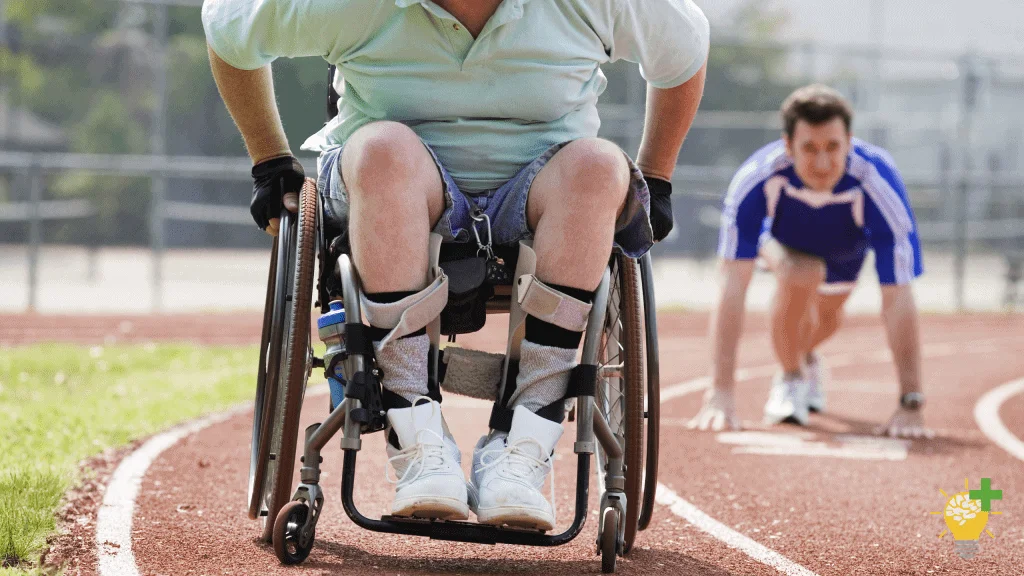No matter your parenting approach, one thing is sure: parenting is tough! For many parents, raising kids means correcting bad behavior, using a stern voice (counting to three, anyone?), or always lecturing the child.
These methods usually don’t produce the desired results. If anything, they increase the likelihood of having a strained relationship with your child. Active parenting is a more positive approach to raising well-rounded children.
This guide explains what it means to be an active parent and the key survival and life skills parents must teach their kids to help them succeed in a democratic society.
What Is Active Parenting?
Active parenting is a proactive approach to raising balanced children. It involves laying a solid foundation for children by instilling values and morals and teaching them essential life and survival skills.
Here’s another way to put it.
Active parenting means anticipating and providing for your child’s physical, emotional, and psychological needs as well as preventing potential behavioral problems before they happen.
In other words, you don’t wait until your child behaves badly or gets in some kind of trouble before correcting, lecturing, or doling out punishment.
Important Qualities Parents Should Teach Kids
According to the Adlerian parenting approach, active parenting involves instilling certain crucial qualities in children to help them thrive in a modern democratic society. These important qualities include the following:
- Self-esteem: A positive self-image is crucial for success in a highly competitive world, and children must develop this trait from an early age to become successful.
- Responsibility: Teaching kids to make decisions as well as accept the outcomes of their actions is essential for building self-reliance.
- Cooperation: Kids need to learn how to be responsible members of society and thrive in small and large groups.
- Courage: This virtue builds resilience, helping children cope with stressful situations and try again when they experience failure and setbacks.
The active parenting approach seems easy on paper, but adopting it can be quite challenging for many, especially authoritarian parents. But it doesn’t have to be.
To help make things a bit easier, I’ve outlined nine ways to instill these important qualities in your children.
9 Pro Tips to Help You Practice Active Parenting

1. Always Give Your Child a Heads Up
As creatures of habit, humans generally don’t like abrupt changes, not initially, at least. We prefer familiar routines because part of our brain interprets change as a threat. And by humans, I mean kids, too!
Considering this, it makes sense to warn children about upcoming expectations and transitions at different stages of their lives. Talk to them about specific things to expect, communicating why they should take a desired action.
This way, your child understands the purpose of the change and will be more likely to embrace it.
This tip is not limited to major transitions only; it applies to everyday situations, too.
For example, tell kids how long they have to play, watch TV, or do something fun before cleaning up, taking a bath, or doing a chore.
They will listen more if you use this approach rather than abruptly stopping them in the middle of something fun to do a less-fun activity.
2. Let Children Make Developmentally Appropriate Choices
One of the ways you can use active parenting to develop decision-making skills in children is by sharing control with them.
This doesn’t mean children can do whatever they like, whenever they like.
Sharing control means allowing your kids the freedom to express their preferences and have a say in certain decisions, especially when the outcomes directly affect them.
Ask what your child would prefer instead of imposing your choice on them. Let them understand the power of choice by explaining the consequences of poor decisions and actions. This way, you respect your child as an individual and teach him or her how to make better decisions without always waiting for others.
To learn more about sharing control and mutual respect between parents and children, read my guide on democratic parenting.
3. Turn Mundane Activities Into Fun
Your kids don’t like cleaning their room? That’s normal, even though it is not okay. Typically, most parents will react by threatening punishment to force children into doing chores.
With active parenting, parents find creative ways to turn mundane activities into fun.
Ditch the idea of “brute force” and connect with your inner child. What spells fun for your child? What can you do to make an activity into some sort of game?
Use your imagination and parent outside the box!
4. Be Mindful of Your Tone

How do you feel as an employee if your boss yells at you? You might not show it, but you will likely get defensive, even if you were in the wrong.
That’s exactly how children react when you yell at them.
A kid’s request usually doesn’t make much sense to an adult, and to make things worse, your child won’t stop screaming their request. If you’re like most parents, you may respond by yelling, “Stop yelling!”
That’s directly saying, “Do as I say, not as I do.”
Your voice cadence and tone determine whether your child willingly accepts your guidance or grudgingly does what you command. Talking with your kids instead of yelling and commanding them helps build their self-esteem.
A report by the National Academies of Sciences, Engineering, and Medicine says that children tend to develop a positive sense of self and an increased ability to handle stressful situations when parents provide positive affirmations, create a sense of security, express love, and respect their kids.
5. Assign Age-Appropriate Responsibilities
If you’re often exhausted at the end of the day on account of the hassles of parenting, perhaps you are constantly reacting to your kids instead of laying out a path for them to follow.
As they say, don’t blame them if you don’t train them, right?
Involve your kids in age-appropriate household chores, assign them responsibilities, and complete tasks with them whenever possible. This way, children will learn firsthand how to do things by themselves, and the time spent with them deepens your relationship.
6. Use “I” Statements When Correcting Bad Behavior
Actively create a foundation for your child’s character development by teaching them what to do, how to think and decide for themselves, and the natural consequences of bad behavior.
No doubt, teaching kids what to do doesn’t mean they won’t test their limits. They will, but you must avoid harsh discipline.
Be firm when they deviate from expected behavior.
You can do this by using “I” statements. For example, when your child is unkind to others, say something like, “I feel disappointed when you are mean to your friends.”
Using “I” statements essentially sidesteps power struggles and won’t put your child on the defensive.
7. Apologize to Your Child When You’re Wrong
Everyone makes mistakes, including great parents. By acknowledging your mistakes and apologizing when you are wrong, you teach your child the following important lessons:
- You model how to be a responsible individual.
- Making mistakes doesn’t mean they are flawed.
- Apologizing is an important part of taking responsibility for their actions.
- You demonstrate how to cooperate with others in a democratic society.
8. Make Your Child Feel Valued
Sometimes, children misbehave to get their parents’ attention, and scolding them will only push them further away. Adopting the active approach to parenting allows you to see a misbehaving child as one who is discouraged in some way.
From this perspective, it becomes easier to help the child feel valued by figuring out exactly why they behave poorly instead of pressuring them into changing the unwanted behavior.
This way, you are not raising children from a reactionary place; rather, you are in charge.
9. Participate in Your Child’s Life
Make time to be there for your child, no matter your busy schedule. Being an active parent involves creating time to give your child your undivided attention.
That said, “participation” looks different for every family.
Participating in children’s life could mean seeing them every day, sharing in their big moments, or being present in all the little moments. The most important thing is making your child know that you are available to them and always want to be part of their life.
In other words, don’t let others guilt-trip you when they judge your parenting because you don’t fit into their definition of “participation.”
Keep in mind, when it comes to time shared with kids, quality is far more important than quantity.
Final Thoughts
Most parents want to give their best to raise independent, responsible, and happy kids. While that’s a praiseworthy goal, remember that active parenting is never about being a perfect parent or raising the perfect child.
Instead, it is about forming a healthy relationship with your child by providing nurture and support. It is doing the best you can to ensure your child’s learning and growth.
Indeed, raising resilient children has many ups and downs, but it gets a bit easier if you apply the tips I’ve shared in this guide.




